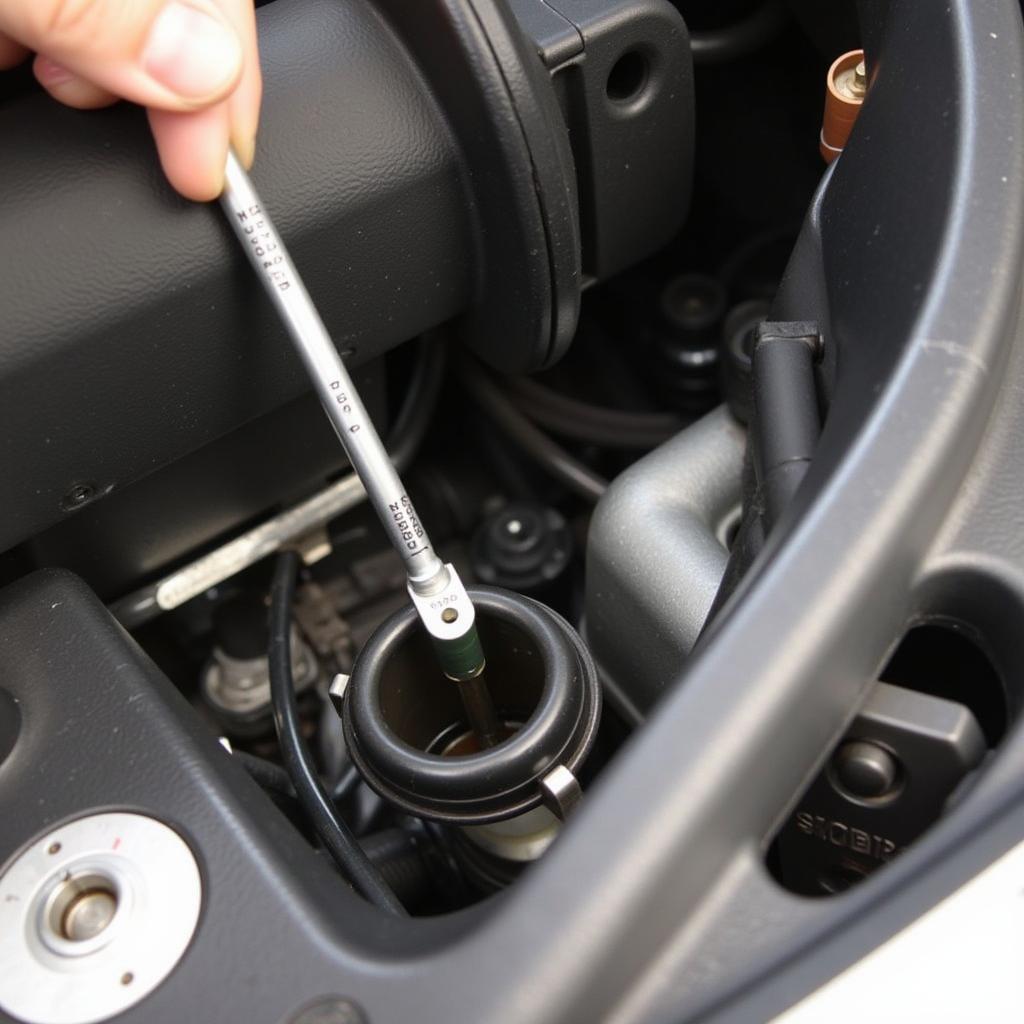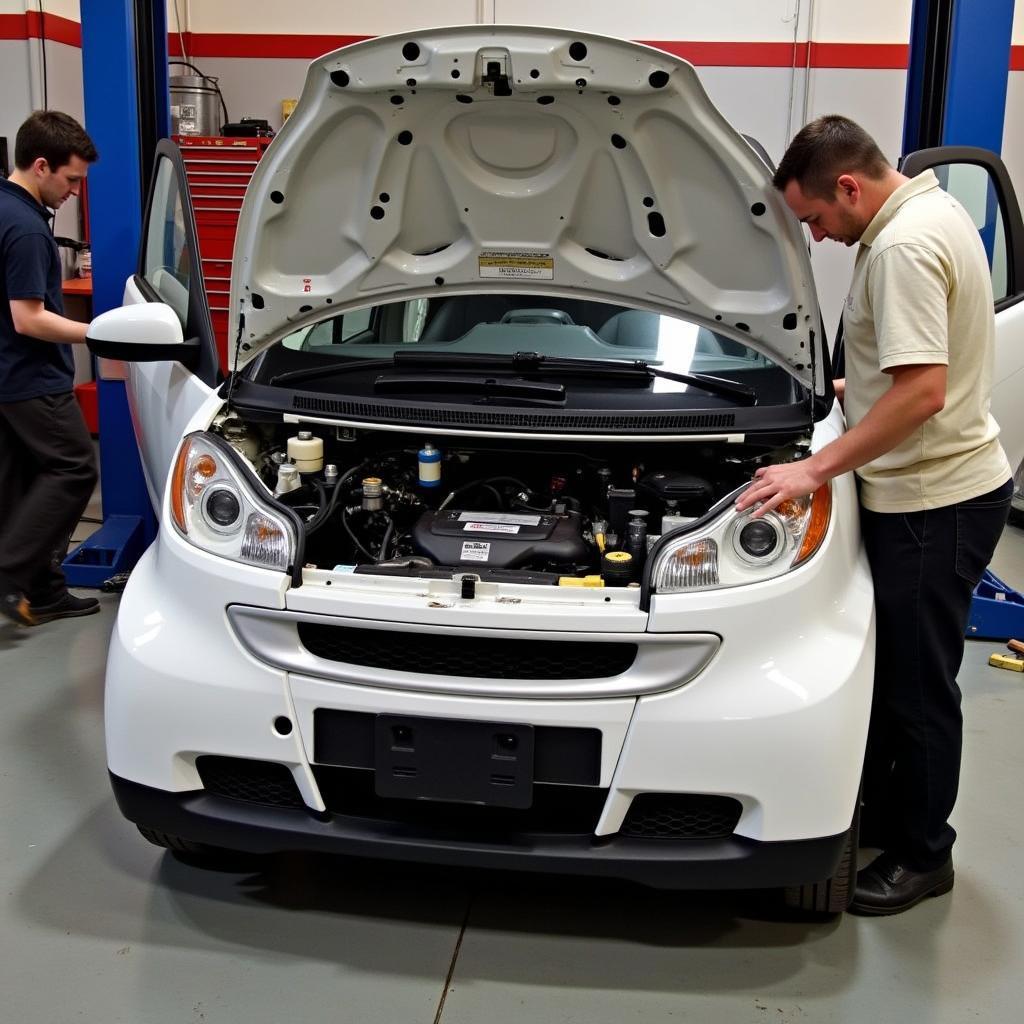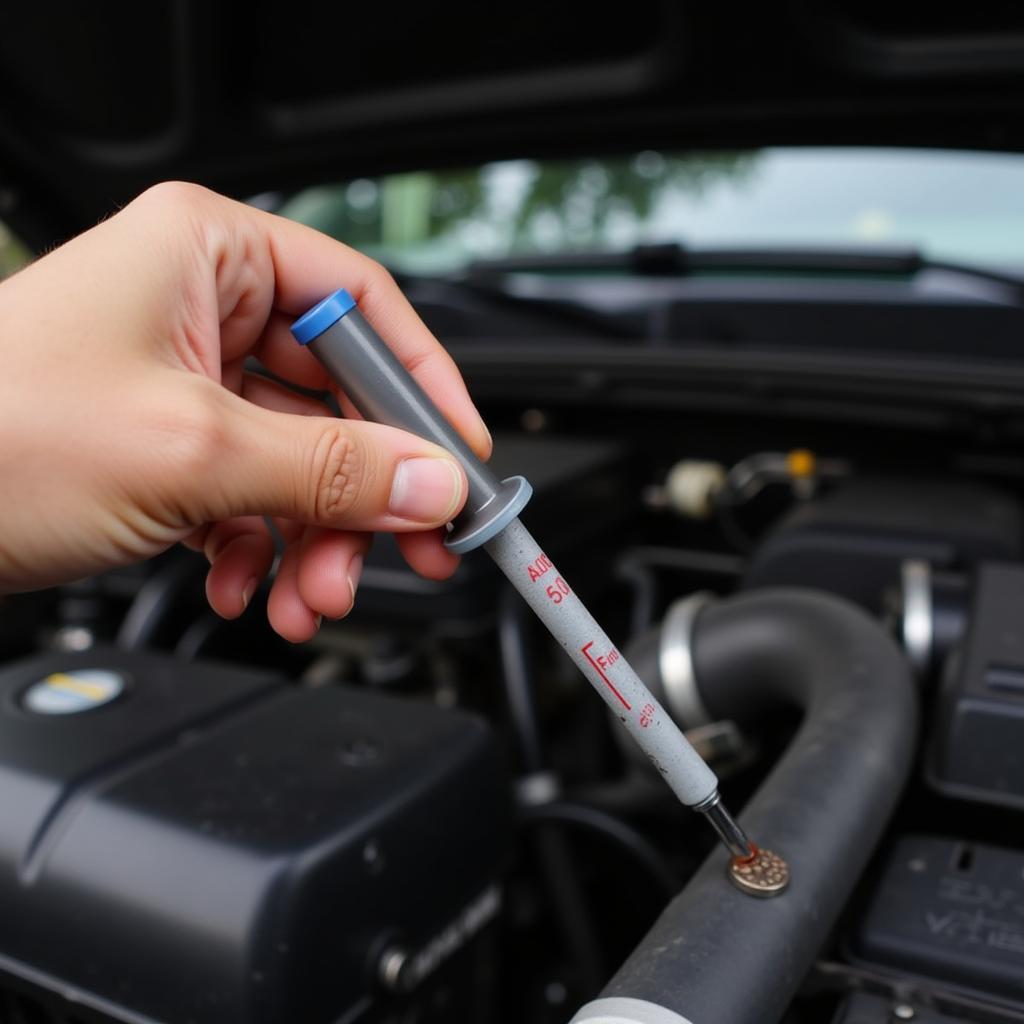The 2009 Smart Fortwo is known for its compact size and fuel efficiency, but it has also gained notoriety for its unique transmission system and the problems that can arise. This guide delves into the common 2009 Smart Car Transmission Problems, offering solutions and advice for owners, mechanics, and technicians.
If you’re experiencing issues with your 2009 Smart car’s transmission, you’re not alone. This automated manual transmission, often described as a semi-automatic or clutchless manual, can exhibit a variety of issues, from rough shifting to complete failure. Understanding the common problems and their solutions can help you make informed decisions about repairs and maintenance. You might be interested in reading more about other cars with similar issues: worst cars with transmission problems.
Common 2009 Smart Car Transmission Symptoms
One of the most frequently reported issues is jerky or hesitant shifting. This can manifest as a noticeable pause between gears, a sudden jolt during gear changes, or a general lack of smoothness in the shifting process. Another common problem is the transmission getting stuck in gear. This can be a dangerous situation, especially if it happens while driving. Other symptoms include grinding noises, slipping gears, and the car refusing to move at all.
 2009 Smart Fortwo experiencing jerky shifting during acceleration
2009 Smart Fortwo experiencing jerky shifting during acceleration
What Causes 2009 Smart Car Transmission Problems?
The automated manual transmission in the 2009 Smart Fortwo relies on a complex system of actuators and sensors to control the clutch and shift gears. Several factors can contribute to problems with this system. A common culprit is the actuator, which can wear out or fail over time. Software glitches in the transmission control module (TCM) can also cause erratic shifting behavior. Low transmission fluid levels or contaminated fluid can also lead to problems. Finally, the clutch itself can wear out, particularly with aggressive driving or frequent stop-and-go traffic.
Troubleshooting 2009 Smart Car Transmission Issues
Before assuming the worst, there are a few simple checks you can perform. First, check the transmission fluid level and condition. If the fluid is low or dirty, top it off or have it changed. Next, check for any error codes using a diagnostic scanner. This can help pinpoint the source of the problem. Sometimes, a simple software update can resolve the issue. If these steps don’t help, it’s time to consult a qualified Smart car specialist.
 Checking the transmission fluid level in a 2009 Smart Fortwo
Checking the transmission fluid level in a 2009 Smart Fortwo
Repairing 2009 Smart Car Transmission Problems
Depending on the specific problem, repairs can range from simple fluid changes to complete transmission replacements. Actuator replacements are a common repair for jerky shifting. If the clutch is worn out, it will need to be replaced. In some cases, the TCM may need to be reprogrammed or replaced. A full transmission rebuild or replacement is the most expensive option, but it may be necessary in cases of severe damage. Have you experienced shifting issues with your Smart car? You might find helpful information in this article: 2009 smart car shifting problems.
Preventing Future Transmission Issues
Regular maintenance is key to preventing transmission problems. Ensure the transmission fluid is changed according to the manufacturer’s recommendations. Avoid aggressive driving habits that put extra strain on the transmission. If you notice any unusual noises or shifting behavior, address the problem promptly to prevent further damage.
Why is my 2009 Smart Car jerking when shifting?
Jerky shifting in a 2009 Smart Car is often caused by a faulty actuator, low transmission fluid, or a software issue.
Can I drive my 2009 Smart Car with transmission problems?
It’s not recommended to drive with transmission problems. It can worsen the issue and lead to more costly repairs.
“Regular maintenance is crucial for the longevity of the Smart car’s transmission,” says John Miller, a certified automotive technician with over 20 years of experience. “Addressing minor issues promptly can often prevent major problems down the road.”
Conclusion
2009 smart car transmission problems can be frustrating, but understanding the common issues and their solutions can help you make informed decisions. Regular maintenance and prompt attention to any warning signs can help keep your Smart car running smoothly. “Don’t ignore those unusual noises or hesitant shifts,” advises Jane Doe, lead mechanic at Smart Car Specialists. “Early detection is key to minimizing repair costs.” For assistance with your 2009 smart car transmission problems, contact AutoTipPro at +1 (641) 206-8880. Our office is located at 500 N St Mary’s St, San Antonio, TX 78205, United States.
 Performing regular maintenance on a 2009 Smart Fortwo
Performing regular maintenance on a 2009 Smart Fortwo
FAQ
- How often should I change the transmission fluid in my 2009 Smart car? Consult your owner’s manual for the recommended interval, but it’s typically every 30,000 to 60,000 miles.
- What is the average cost to replace a 2009 Smart car transmission? The cost can vary depending on the specific repair needed, but it can range from a few hundred dollars for minor repairs to several thousand for a complete replacement.
- How can I tell if my 2009 Smart car’s actuator is failing? Jerky shifting, delayed engagement, and grinding noises are common signs of a failing actuator.
- Is the 2009 Smart car transmission reliable? The transmission in the 2009 Smart car has been known to have issues, especially if not properly maintained.
- Can I drive my Smart car if the transmission is slipping? No, it’s unsafe to drive with a slipping transmission. It’s best to have it towed to a repair shop.
- What are the signs of low transmission fluid? Difficulty shifting, slipping gears, and a burning smell are potential signs of low transmission fluid.
- Where can I find a qualified Smart car mechanic? You can search online for specialized Smart car repair shops or contact your local authorized dealer.






Leave a Reply